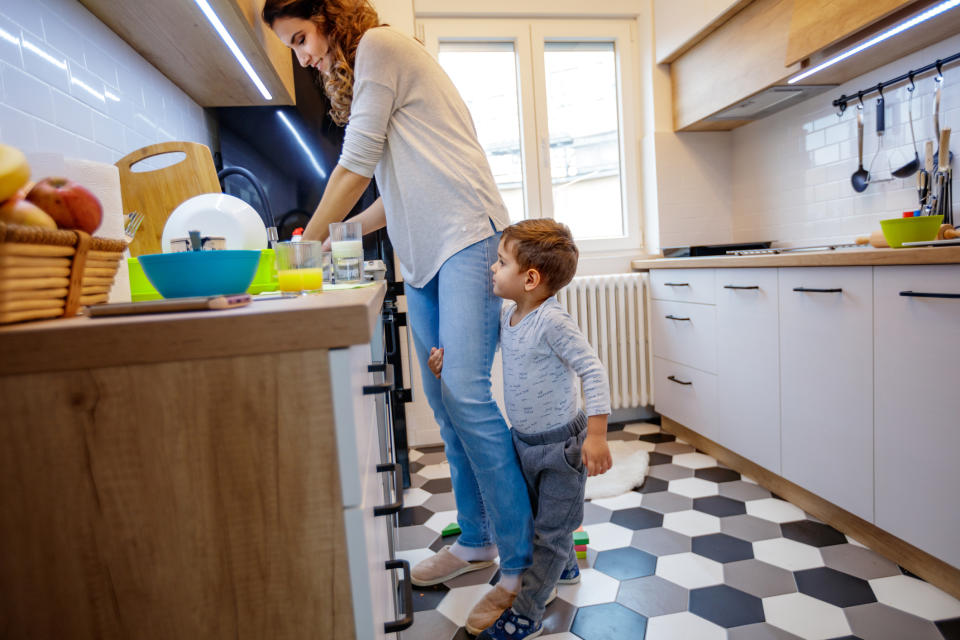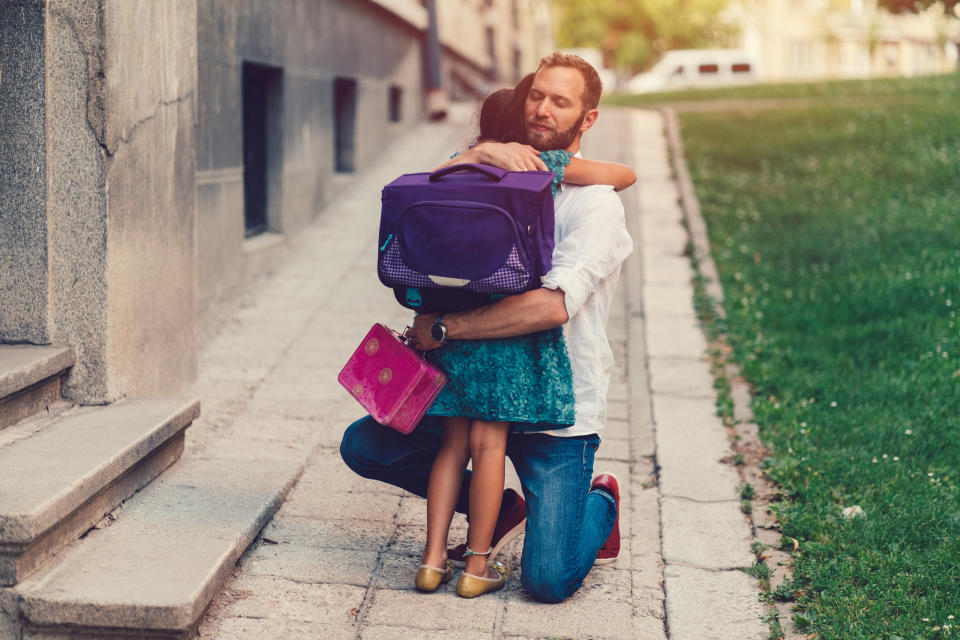Parents need to be aware of 'separation anxiety' in children caused by coronavirus lockdown, expert says

Parents could see their children suffering from separation anxiety issues when coronavirus lockdown measures come to an end, even if it’s never been a problem before.
That’s according to Dr Zoi Nikiforidou, a senior lecturer in early childhood studies at Liverpool Hope University.
Nursery and school closures due to the pandemic mean youngsters are spending increased lengths of time with their parents, often in close proximity, due to social distancing measures.
But Dr Nikiforidou believes that when restrictions are lifted and the time comes for children to return to the classroom, separation anxiety could be a “real issue” for some families.
“The coronavirus crisis is unprecedented in modern times,” she says.
“We don’t know how the pandemic might contribute to the mental wellbeing of children further down the line, or how they’ll interpret the situation.
“But one thing I feel we do need to be mindful about is potential issues with separation anxiety.”
Read more: How to talk to children about the coronavirus

Dr Nikiforidou says children may have grown accustomed to being around their parents and are likely to be enjoying that connection.
“Young children in particular are living through a new reality,” she says. “They will have settled into a new routine which has provided them with a safety net to escape the uncertainty.
“They think, ‘This is what happens now. This is how I pass my day. And this is what I now do with my family, right here at home.’ If that routine changes once more, they could be left feeling quite vulnerable.”
Parents may need to therefore be mindful about a degree of separation anxiety that might not have been present before, or for separation anxiety problems to return in children where parents thought they’d overcome it.
Read more: Online classes and activities for children during the coronavirus outbreak
What is separation anxiety?
According to the NHS, separation anxiety typically affects children aged between six months and three years, but it can also impact on older children and even adolescents.
The unprecedented situation coronavirus is presenting families could create issues for those at both primary and secondary school age.
Separation anxiety doesn’t just manifest as a refusal to leave the house – it can also result in sleep disturbance as well as physical complaints such as headaches, stomach aches and even vomiting.
Dr Nikiforidou believes nurseries and schools should think about temporary provisions to address issues of separation anxiety when children are eventually allowed to return.
“It should be discussed between families and schools and other settings in order to make the transition smooth and less overwhelming for the child,” she says.
“We are partners in this and need to trust each other.
“Schools could perhaps think about staggered returns, or if parents have the luxury of time there could be plans put in place for mums and dads to stay for an hour or so with the child in the school environment to help the transition, if needed.”
Read more: How coronavirus measures may be affecting children's mental health

Dr Nikiforidou adds: “Remember that this will be a temporary problem, if it happens at all.
“Your child is highly adaptable and resilient, so don’t underestimate their capacity for coping in the end. And also remember that it’s something children have to tackle as they negotiate the pathway of their lives.
“It’s just a matter of how we can encourage the move to be as stress-free as possible by maintaining an open dialogue between children, parents, teachers and other practitioners.”
If you’re already spotting signs your child could be suffering from separation anxiety, the NHS suggests some tips including talking to your child about the exciting things you can do later when you are reunited; to leave your child with something comforting, like a favourite toy; and to make goodbyes confident and happy.


